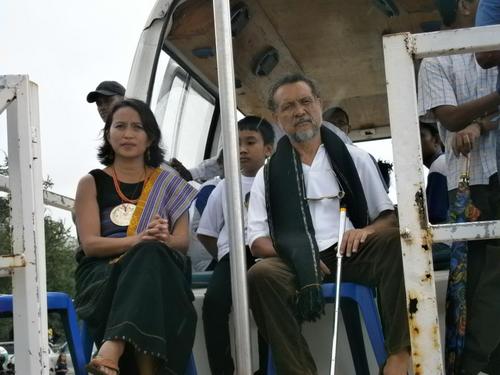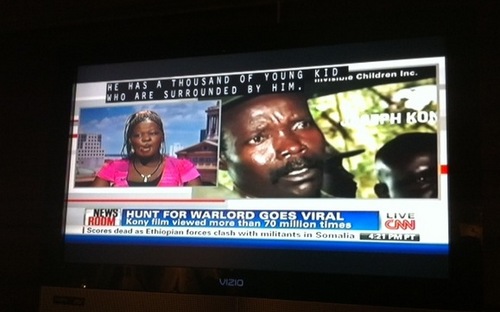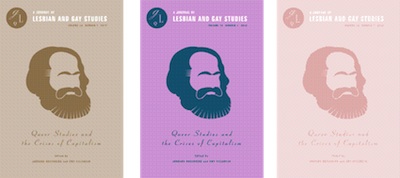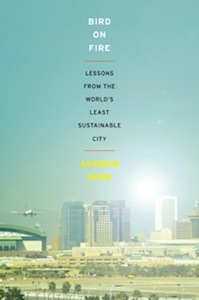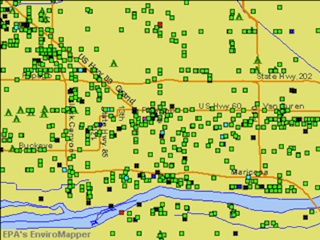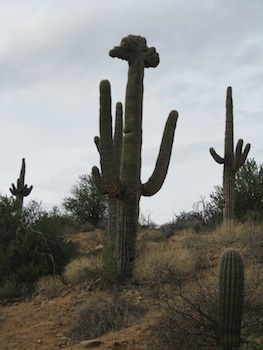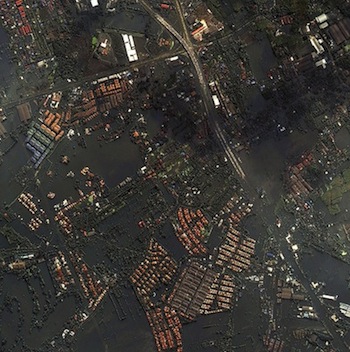Jacqueline Aquino Siapno (Joy) is originally from Dagupan City, Pangasinan, Philippines and is married to Fernando `Lasama’ de Araujo, Presidential Candidate in Timor Leste (East Timor) and current President of Parliament. Joy Siapno is the author of Gender, Islam, Nationalism and … Continue reading “Siding with the dispossessed: Interview with Jacqueline Aquino Siapno”
Category:
Kony 2012: Inaudible Children
Tavia Nyong'oCan the subaltern speak? No, but she can certainly sob, with tears of raking loss and, a few rapid film cuts later, tears of heartwarming gratitude. I learned that much watching Kony 2012 this morning, even if, like most people from the … Continue reading “Kony 2012: Inaudible Children”
FORCE: The UC Policy
Social Text CollectiveOpening Reception, 3/14, 3-6pm – Panel discussion on the militarization of the campus police, 3/14, 4:30-5:30pm – Exhibition opens 3/12 through 3/23/2012
Protests, Petitions and Publishing: Widening Access to Research in 2012
Social Text CollectiveHow can access to important research and scholarship be available to all, not just “the one percent”? OnTuesday, February 28, at 12:00 PM in Columbia University’s Faculty House Presidential Rooms 2 & 3, join us for “Protests, Petitions and Publishing: Widening … Continue reading “Protests, Petitions and Publishing: Widening Access to Research in 2012”
Thursday Feb 23, 5:00PM – GLQ Issue Launch: Queer Studies and the Crisis of Capitalism
Social Text CollectiveGLQ ISSUE LAUNCH QUEER STUDIES AND THE CRISIS OF CAPITALISM Volume 18, Number 1, 2012 edited by Jordana Rosenberg and Amy Villarejo JOIN US! FEBRUARY 23, 2012, 5:00 PM Dept. of Social & Cultural Analysis 20 Cooper Square, 4th Fl NYC Come celebrate … Continue reading “Thursday Feb 23, 5:00PM – GLQ Issue Launch: Queer Studies and the Crisis of Capitalism”
ST Members Return from Delegation to Palestine
Social Text CollectiveFive faculty from U.S. universities who recently completed a week-long visit to Occupied Palestine and Israel are calling on academic colleagues everywhere to support the United States Campaign for the Academic and Cultural Boycott of Israel (USACBI).
ST Members Return from Delegation to Palestine
Social Text CollectiveFive faculty from U.S. universities who recently completed a week-long visit to Occupied Palestine and Israel are calling on academic colleagues everywhere to support the United States Campaign for the Academic and Cultural Boycott of Israel (USACBI). The professors, … Continue reading “ST Members Return from Delegation to Palestine”
Revolutionary Expertise?
Hannah Chadeayne AppelAs the New York Occupy movement goes on, it also spreads out. 16 Beaver, Charlotte’s place, and the Atrium of 60 Wall Street (now home to General Assemblies), remain nodes in the occupied downtown real estate network, but the overwhelming … Continue reading “Revolutionary Expertise?”
Why the Question of Palestine is a Feminist Concern
Neferti X. M. TadiarI was recently part of a fact-finding delegation to Palestine organized by the US Academic and Cultural Boycott of Israel. The delegation was composed of concerned academics and scholars based in the U.S., including myself. During our weeklong investigative trip, we were witness to multiple and varied testimonies to and clear evidence of the daily acts of violence, harassment and humiliation that Palestinians are subjected to, both massive and intimate. Individuals from several families living in Eastern Jerusalem told us their personal stories of being physically thrown out of their homes in the middle of the night, their houses pillaged and taken over by settlers (many of whom were only recently residents of the U.S.), their belongings strewn onto the streets only to be looted by morning, their children targeted to bear recurring nightmares of the punishing character of their eviction (being made to see, for example, the displayed burning of their dolls alongside that of their beds).
Arab Talk Interview: Nikhil Pal Singh on Palestine
Nikhil Pal SinghArab Talk Host Jess Ghannam interviews Professor Nikhil Singh about his recent trip to Palestine sponsored by the USACBI.
Introduction: By the Time I Got to Phoenix (Book Excerpt)
andrew rossFor those who prefer history chopped up into neat slices, John McCain’s modest concession speech on the lawn of the Arizona Biltmore on November 5, 2008, seemed like a clean cut of the knife. With the economy in a nosedive, it was not just the end of a presidential campaign. The neoliberal era seemed to be over–its reigning troika of deregulation, marketization, and privatization cast into disgrace, along with its most recent fiscal vehicles such as debt leveraging and speculation in finance and land. Nowhere was the devastation more visible than in McCain’s hometown. Phoenix had flown highest in the race to profit from the housing bubble, and it had fallen the furthest. Footage of the metro region’s outer-ring subdivisions reclaimed by sage grass, tumbleweed, and geckos was as evocative of the bubble’s savage aftermath as photographs of the Dust Bowl’s windblown soil had been of the Great Depression.
Bird on Fire: Response
julie szeAndrew Ross has done it again. He’s researched something new, and written it up elegantly. In this case, the topic is sustainability, in that most right-wing of cities, Phoenix (Arizona). Ross weaves in a complex set of stories and voices, … Continue reading “Bird on Fire: Response”
A City like the Desert
sandy bahrI confess: I drive “a Prius, eat organic and support wilderness preservation.” I am under no illusion, however, that doing these things makes my lifestyle sustainable. There is much more to achieving sustainability goals personally and, more significantly, sustainability … Continue reading “A City like the Desert”
That Which Is Not Inferno, Or, The Pleasure of the Urban Text
kristin koptiuchPhoenicians starved for their city’s self image will find critical satisfaction in Andrew Ross’s Bird on Fire. As a Phoenix resident for nearly 20 years, I know all too well how we have long been deprived of the kind … Continue reading “That Which Is Not Inferno, Or, The Pleasure of the Urban Text”
The Future is Now: Climate Change and Environmental Justice
laura pulidoOn one side of town, there would be ecological ‘haves,’ enjoying access to healthy, morally upstanding green products and services. On the other side of town, ecological ‘have-nots’ would be languishing in the smoke, fumes, toxic chemicals, and illnesses … Continue reading “The Future is Now: Climate Change and Environmental Justice”


